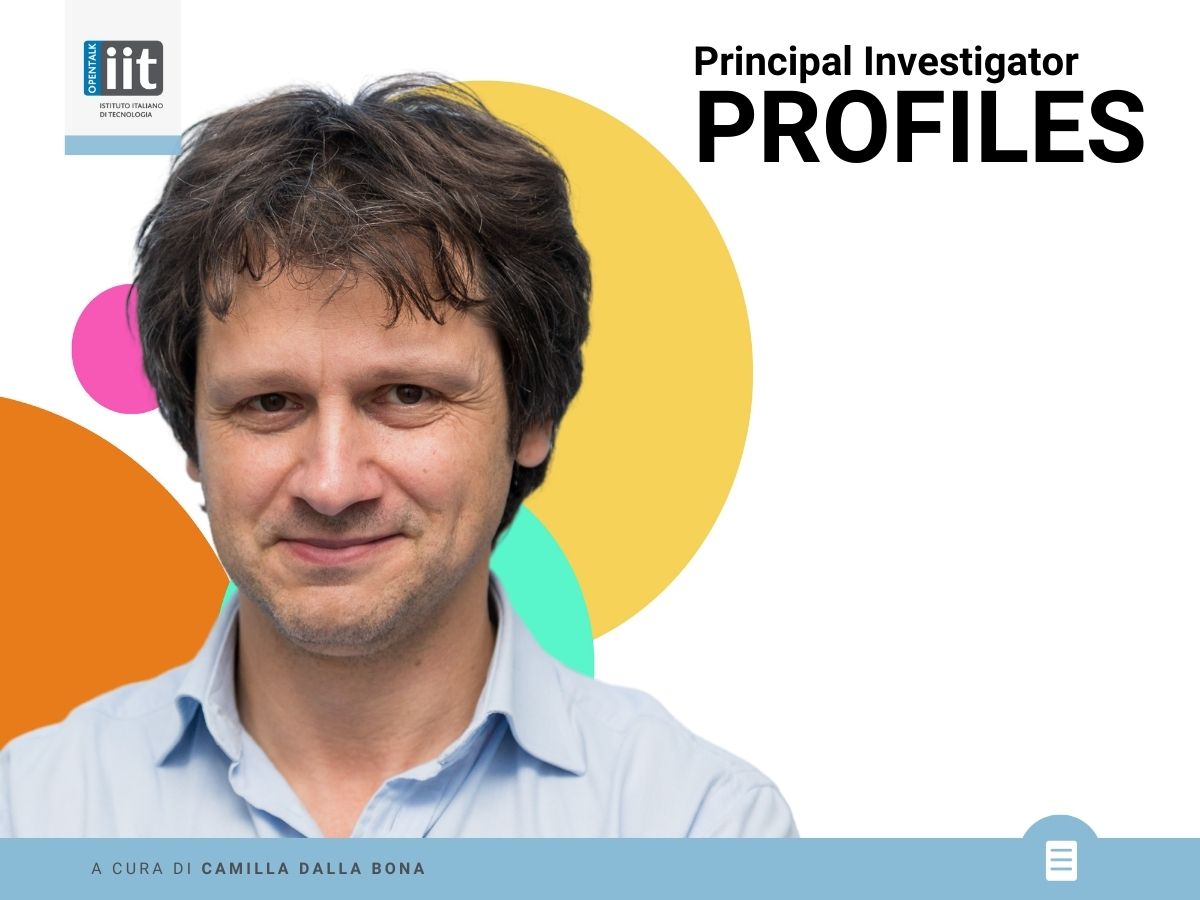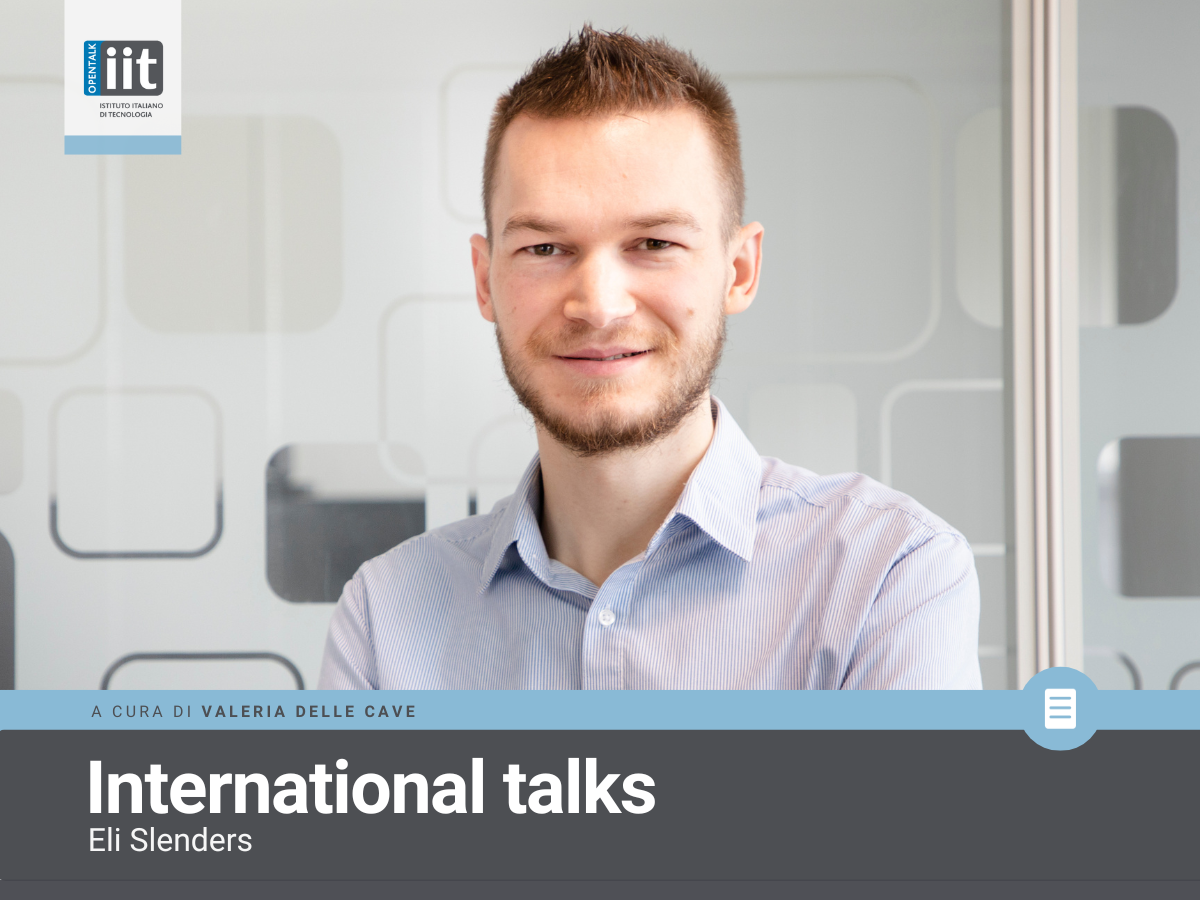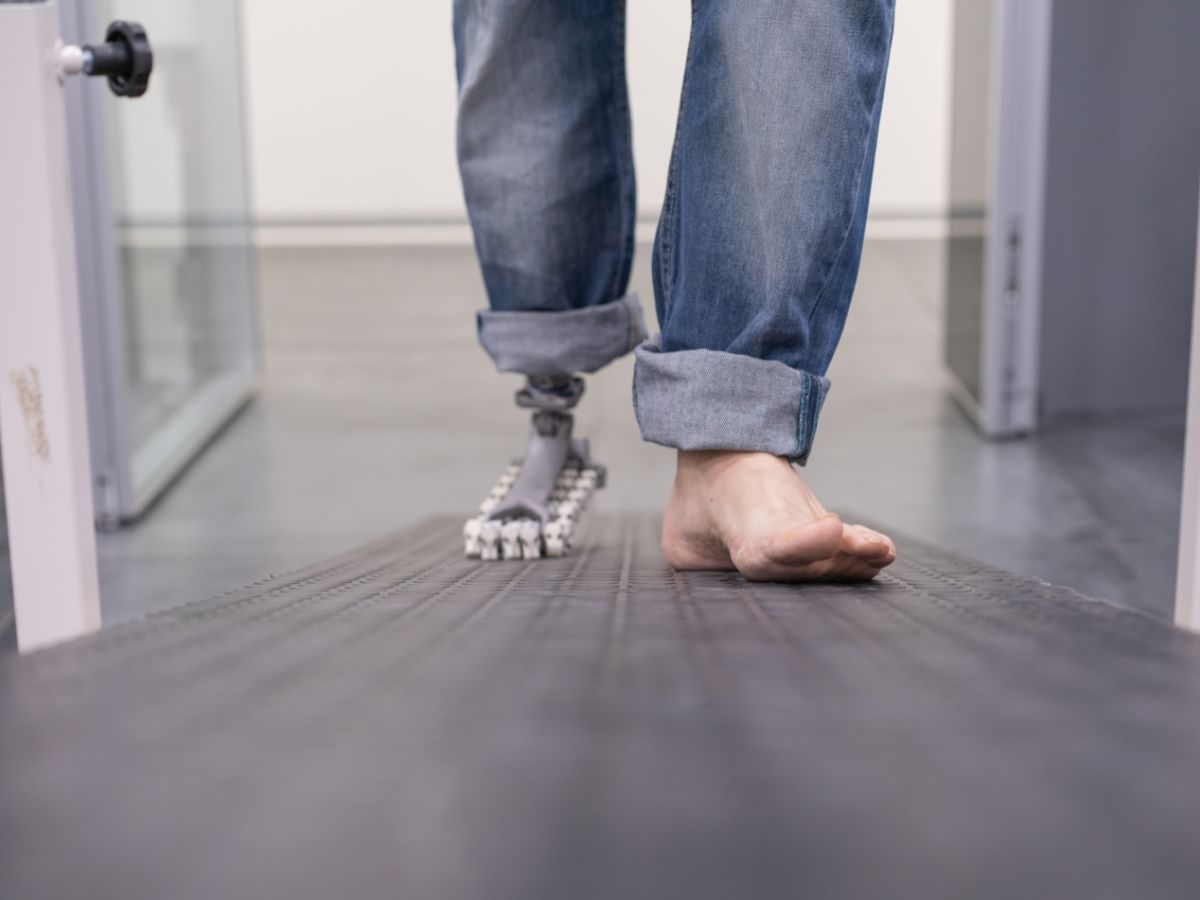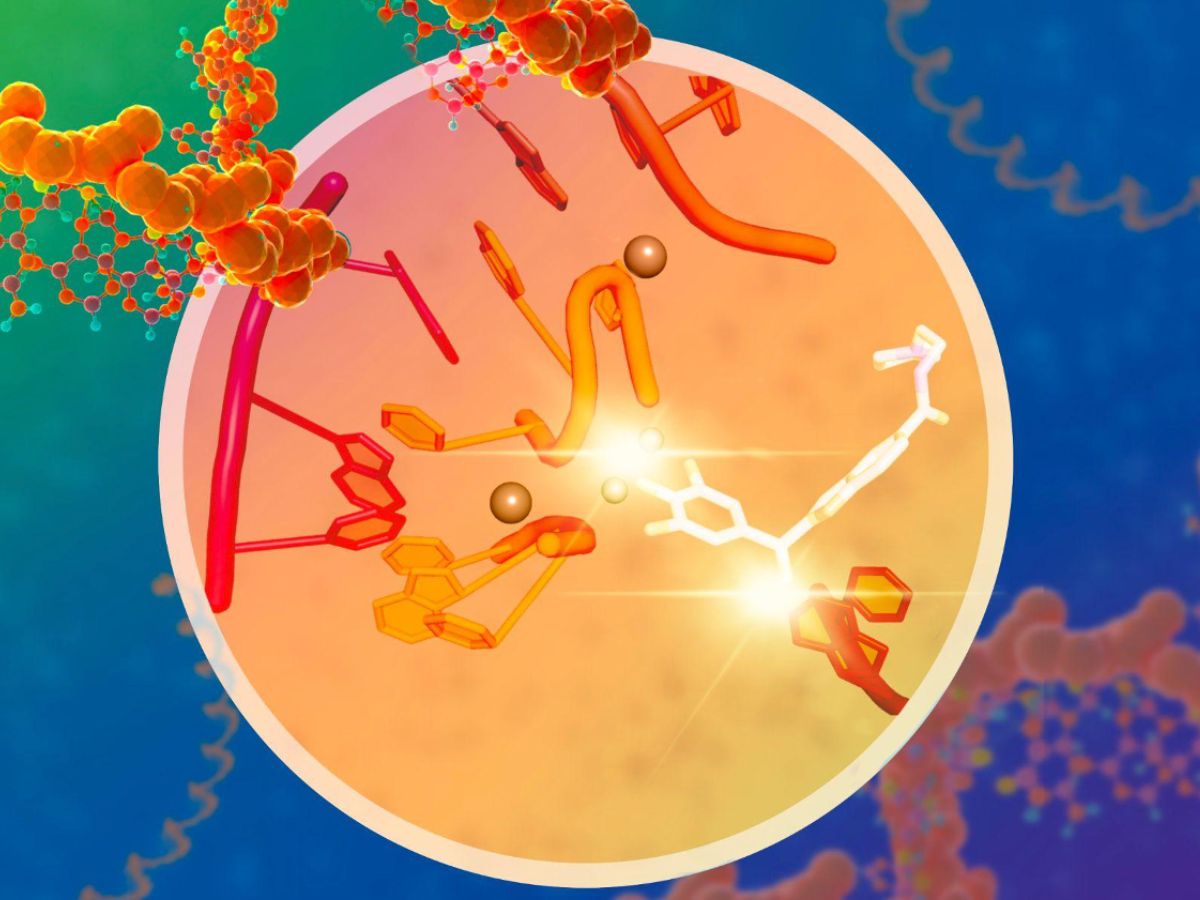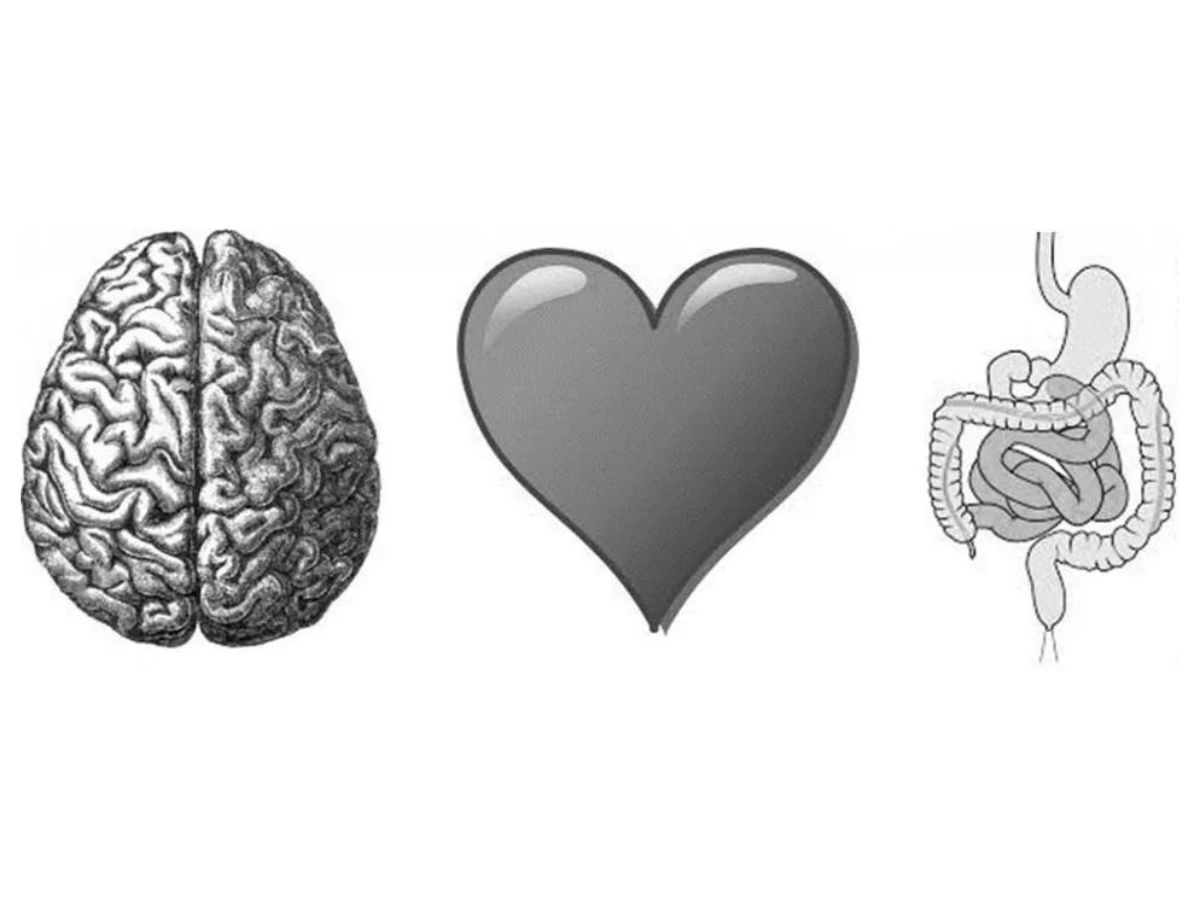Interview with Liberato Manna, coordinator of the IIT “NanoChemistry” research line
Name: Liberato
Surname: Manna
Place of birth: Barquisimeto (Venezuela)
Role: PI, NanoChemistry
What does your research team do? We mainly deal with the chemical synthesis of new materials with properties that allow them to be used in areas such as photovoltaic power generation, energy storage, hydrogen production and the fabrication of light-emitting devices. One key aspect of our work is the collaboration with other research groups both internal and external to IIT.
When you were younger, was this the job you had in mind? I didn’t imagine I would be doing exactly this. I have always liked science, but I used to be more interested in subjects like mathematics and physics than in chemistry. However, once I moved on to high school, I began to study chemistry in more depth and I thought at time that it was a more down-to-earth subject, and more applicable to the real world than I had previously thought and perhaps offering more job opportunities.
If you hadn’t taken this career path, what job would you have liked to have? If I could go back, I would probably choose an academic career in mathematics or physics, because these are subjects that still interest me greatly. In reality, I also have a passion for humanist subjects, such as philosophy, although these interests emerged later.
Was there ever a time that you wanted to give up and do something else? To be honest, this has never happened. Obviously, one can have moments of dissatisfaction, particularly when you can’t get funding, or when you think you are following a research path that you consider not really exciting. However, I have never had any truly critical moments because I really like the work I do. Yet, I do often wonder whether the activities I am involved in are truly the most I can do or whether, at this moment in my career I would do better by focusing on roles that are complementary to pure research and teaching, for example on activities that seek to create favourable conditions for young researchers.
“Publish or perish.” How does the pressure to publish influence your days and your professional choices? I don’t think I have ever been under stress from this point of view. This is because I have always had highly skilled people in my group, with plenty of interesting ideas. For me, writing a manuscript is an edifying and creative experience and can even be fun. Naturally, there is a focus on always publishing high-quality results, but I have never felt under pressure to publish any more than I do.
When did you realise you were going in the right direction? Without a doubt, when I went to the United States for the first time, almost 25 years ago. There, I saw that my ideas, which emerged from discussions and collaborations with other people, produced interesting results. This is how I understood that I had a good intuition for materials chemistry. Then, when I returned to Italy, I continued in a direction that later proved to be fruitful.
What is your next goal? One goal is to see the materials developed in the laboratory applied in the real world. For example, we have recently developed prototype light-emitting devices that work well and catalysts that produce hydrogen efficiently. The other goal is to work in the direction of creating the necessary conditions for younger researchers to thrive and mature. In my opinion, there comes a time in everyone’s career in which they realise that they have to make more room for others, because research is only possible through teamwork and requires always fresh energies and ideas. Instead, in our field, there is often an excessive focus on individuals, and the risk is that more attention is placed on scientists than on the results of their research.
What is the toughest aspect of your job? There are many difficult aspects; one is obtaining funding, because research is an extremely competitive sector and the current funding mechanisms are such that only an exceedingly small percentage of projects gets funded. Another particularly important aspect, for those of us working in Italy, is attractiveness. Our unattractive system does not allow us to fully compete at an international level. A shortage of strong human capital clearly delays the development of many ideas. Another aspect is that of how to manage people effectively, and scientists are not necessarily good at this. If you do not create a collaborative and stimulating environment, based above all on a profound respect for the others and their ideas, you will not be able to keep a good research group on the long term.
Senior researchers necessarily have to deal with many bureaucratic aspects. On the surface, this is an aspect that does not sit well with research activities. How do you see this? In my opinion, IIT is fairly efficient with regards to bureaucracy. We have departments that work very well and procedures are therefore more streamlined than in other places. Obviously, problems emerge, perhaps when our Institute interacts with other external organisations. In these cases, things almost always slow down, above all when handling procedures for non-European citizens, which causes heavy delays in the arrival of new hirings.
Who should invest more in research than they currently do? In Italy? Primarily, the State, without a doubt. In this regard there are obvious shortcomings, not only in the levels of funding, but also in how regularly funds are granted. However, research cannot be financed exclusively with public funds. Our industries could possibly do more. There is also another aspect to highlight: that of philanthropy, which in our country is almost non-existent. Instead, in the United States, as well as in other places – Israel comes to mind – individuals who have made fortunes over their careers often make substantial donations to the universities where they had studied.
Do people talk about science outside the labs and the academic world? In my opinion, not enough. One only has to consider the most recent election campaign, during which there was practically no mention of science ever. This might be because of the still common stereotype of scientists as individuals that spend their time researching crazy topics. Research has been undoubtedly seen in a more positive light in the wake of the recent COVID pandemic, as it became clear even to the layperson how vaccines – the result of scientific research – have saved so many lives. However, science is not given the public exposure that I feel it deserves. Some of the fault is probably that of scientists themselves, as I believe they need to raise their voices and ask to be consulted more often.
Who gave you the most important advice during your career? This is a tricky question. If I really think about it, I would say that the two people who really taught me the most were my Degree thesis supervisor professor Carmelo Giacovazzo, a famous crystallographer who has now retired, and Professor Paul Alivisatos, the current president of the University of Chicago. These two persons set me on a path that still guides my way of thinking and of conducting research. My scientific interests are still in some way tied to these two people.
What would you say to the younger you finishing his PhD? That they should make new experiences, by changing groups various times in their career, maybe even adjusting the direction of their research. This is because the more things you try, the more techniques you learn, the more contacts you make, the more your skills will grow, the wider your horizons become. All this will increase your awareness of what you can and want to do and will prepare you for leadership, if that is what you want.
Is working in different countries essential for a researcher? Absolutely, it should be an integral aspect. Not only because you explore different research themes, but also because you discover diverse cultures, different ways of thinking and working. A scientist speaks a universal language, but in order to speak that language you also need to be a citizen of the world, therefore you must have travelled and seen things. You cannot contemplate settling in one place at the age of 25-30, because in a certain sense you will get fossilized. At that age, people are sponges, they soak up so much and learn so much. Through travelling, people have more opportunities to learn and to understand things in a deeper manner, because they come up against some many parameters. Collaborating with scientists from all over the world also teaches you to approach global matters which go beyond research, with a less self-serving attitude and with more attention to the needs of nations, communities and cultures other than your own.
Imagine you could improve one aspect of research in general. What would you choose? I would definitely change the mechanisms according to which funding is allocated. At the moment, these mechanisms require a huge amount of time and resources, not only for those writing the funding proposals, but also for those who have to evaluate them. To be clearer a system in which only 5% of the applications presented (at times less than 1%) can be funded is neither efficient nor fair, because we all know too well that at least 20-25% of the proposals are extremely valid and 10-15% are undoubtedly truly excellent. One also cannot help wondering how many of those very few funded applications are selected solely for their scientific content and how many instead receive a “push” simply by having on them one or more names of famous scientists, a factor that has been demonstrated to significantly influence the judgement of the evaluators.

